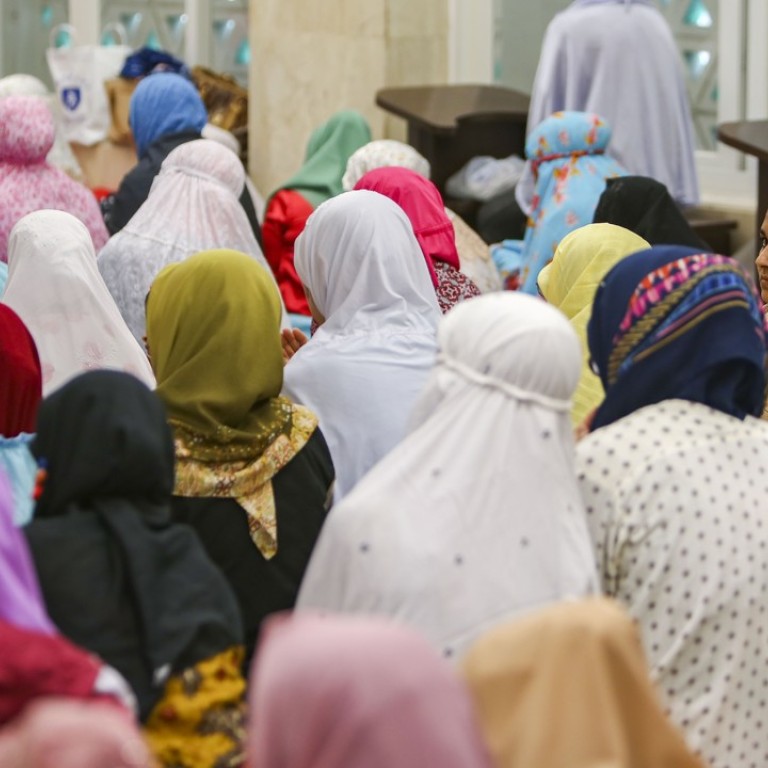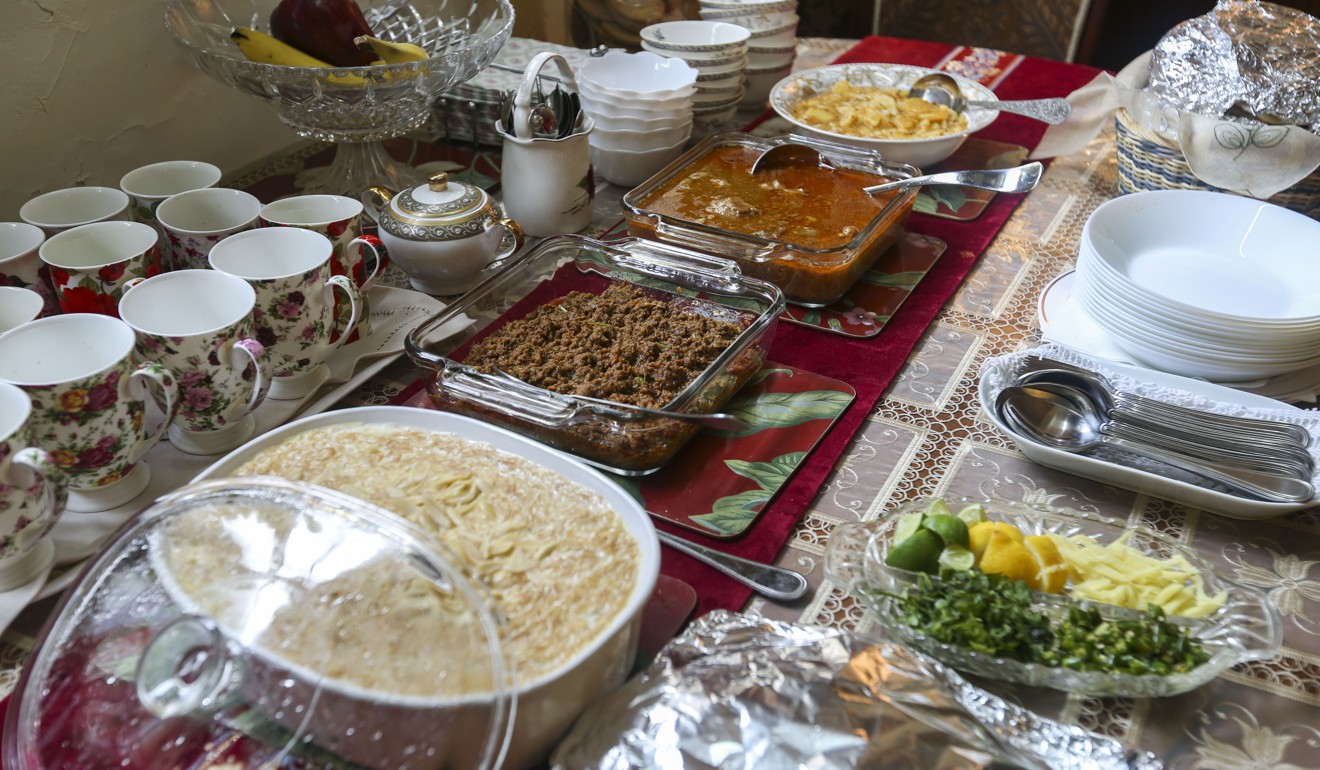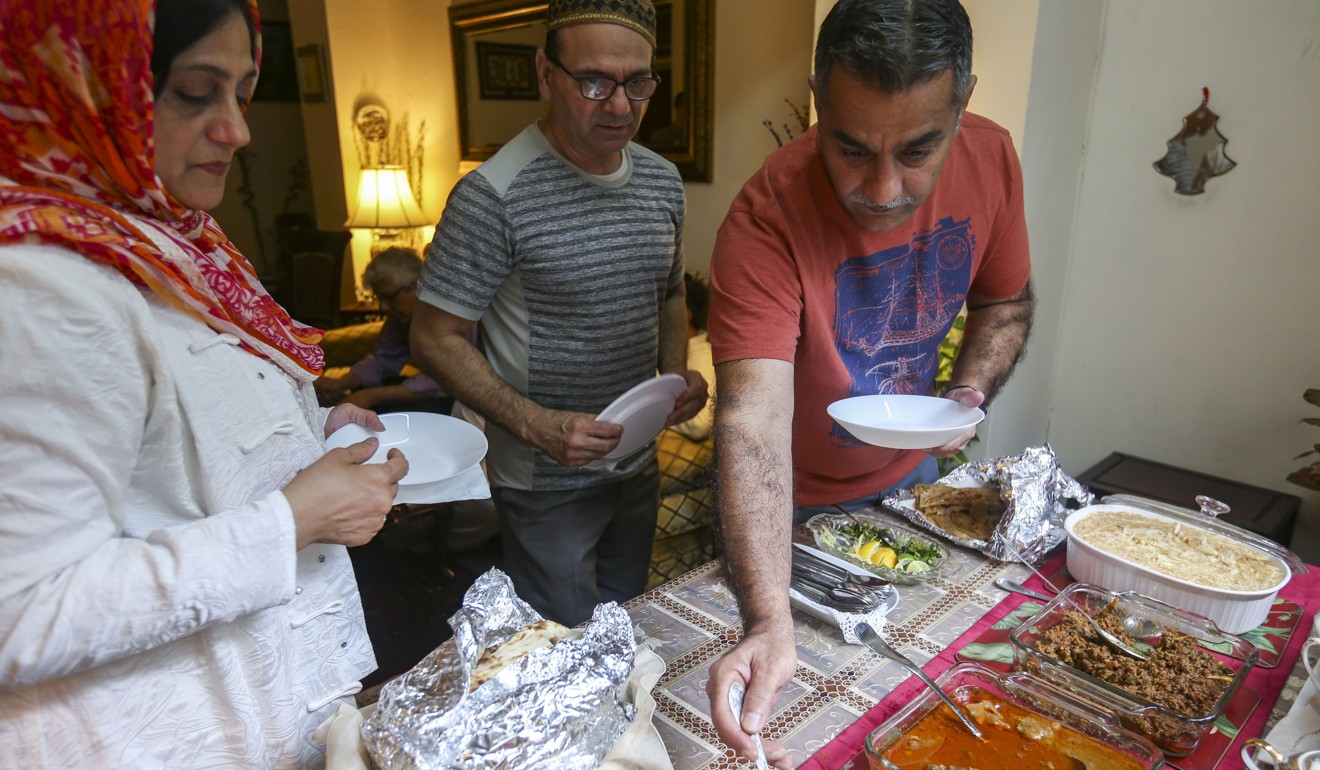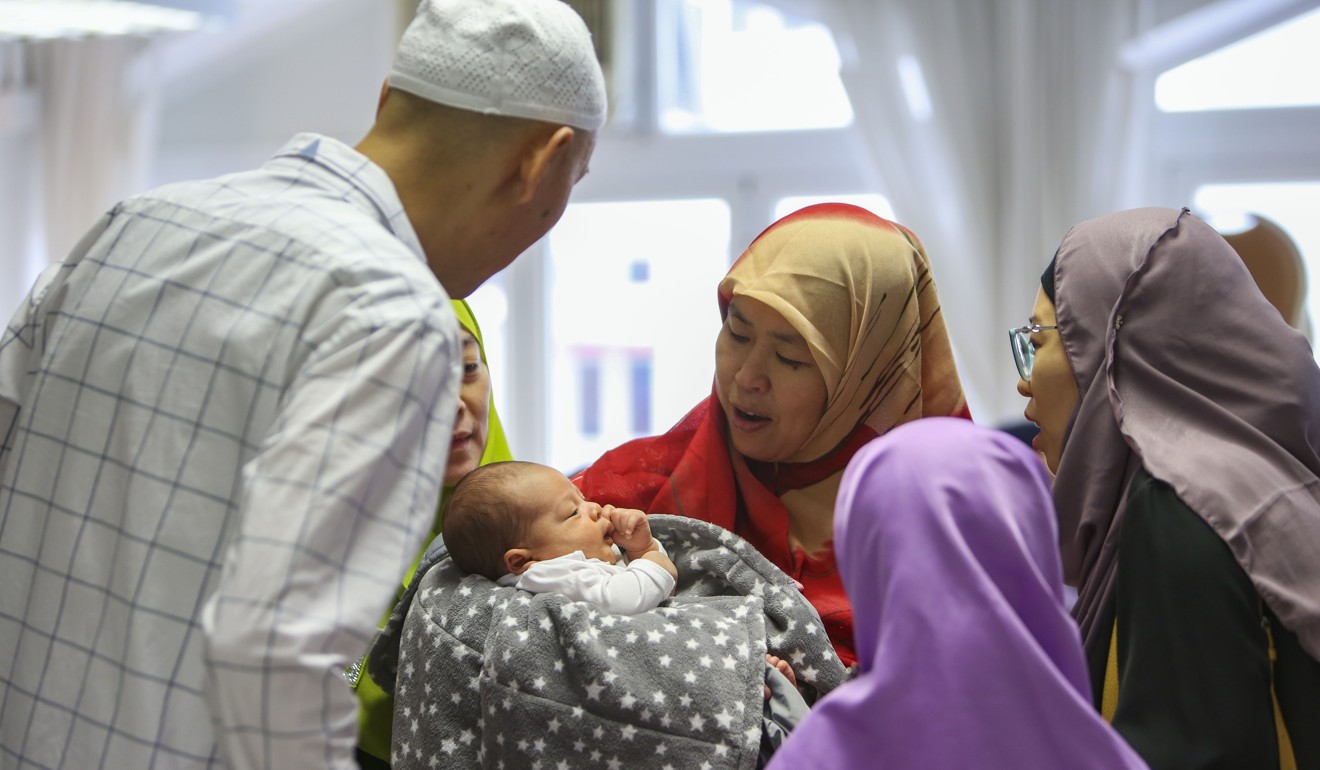
Breaking the fast: Muslims of Hong Kong, many far from home, celebrate Eid ul-Fitr
City’s Islamic community, including tens of thousands of Indonesian domestic helpers, come together for the end of Ramadan
While most Muslim families around the world spent Thursday evening preparing to celebrate Eid ul-Fitr, the end of the Islamic holy month of Ramadan, many in Hong Kong were yearning for home at the end of another hard day’s work.
Unlike in their home countries, where the celebration is a public holiday and the azaan – call to prayer – will ring out proudly, Muslim migrants in Hong Kong have relatively small communal gatherings to celebrate the end of their month-long fast.
Indonesians – many of them working as domestic helpers – form the largest group of Muslims in the city, their number estimated at about 300,000, according to Saeed Uddin, honorary secretary of the Incorporated Trustees of the Islamic Community Fund of Hong Kong. There are also about 150, 000 to 160, 000 Indian Muslims and 40,000 to 45,000 Pakistani Muslims in the city.
“Going to mosques to pray with the whole family and village is a traditional practice for the Muslim community,” said Eni Lestari, chairwoman of the International Migrants Alliance in Hong Kong and a helper who came to the city in 2000. “The feeling stays strong even when abroad.”

“To Muslims, Eid ul-Fitr is a day to relax and connect with family.”
Lestari said she would join a prayer gathering organised by the Indonesian consulate on Friday morning, in Victoria Park.
Eid begins with morning prayers in open spaces and mosques on the first day of Shawwal, the tenth month of the Islamic calendar. The celebrations can last up to three days, depending on the sighting of the moon. This is because Islam uses a lunar calendar and every month begins with the sighting of a new moon. The first day of Shawwal marks the end of Ramadan and the beginning of Eid.
Sringatin, chairwoman of the Indonesian Migrant Workers’ Union, hoped the consulate would send official letters about the event to employers, encouraging them to allow at least an hour or two off work so workers could partake in group prayers.
Taliban and Afghan forces agree unprecedented ceasefire over Eid
Helpers taking care of children and the elderly are caught in a difficult position, as leaving their job is often impossible. Some workers, with their employers’ permission, take their charges along with them.
“We don’t have any choice,” Sringatin said.
During Eid, many community halls in Hong Kong open for Muslims, as many people look to rent large spaces for celebrations with open invitations to their friends and family.
Going to mosques to pray with the whole family and village is a traditional practice for the Muslim community.
Uddin said there were no restrictions on the type of Islam allowed at the mosques and prayers.
“Our doors are open for everyone,” he said. “All mosques are open for all Muslims.”
Events like this are a chance for workers to eat and share traditional halal food, which isn’t often provided by employers. “We don’t want them to be lonely,” Sringatin said.
In addition, Lestari said that during big annual events for Indonesian Muslims to celebrate together, they will usually don traditional Muslim clothing, such as long sleeves or skirts with bright colours, that symbolise happiness and joy.
Getting a new set of clothes is traditional at Eid, when mosques will be packed with Muslims in their finest attire. Shahrukh Khan, a 20-year-old Pakistani Muslim, said he would be wearing his shalwar kameez, which consists of baggy trousers (shalwaar) and long shirt (kameez).
Preparations the night before differ between cultures. Some families may choose to put henna on their hands, such as Seyed Abdul Gaffar Zulaiha Zulfika, a 17-year-old Indian woman. Zulfika and her family would then wake up the next morning and take a bath known as ghusl, an Arabic term referring to the full-body cleaning ritual, mandatory before performing any other rites or prayers.
The celebration of Eid essentially means breaking of the fast. Fasting serves many purposes to Muslims, intended to remind them of the suffering of the poor and help them feel a sense of kinship with one another. Zulfika said: “This year I was able to help out my mother in preparing iftar [the first meal after the fast], understanding their sacrifice for us in the process. As they fast as well and yet never fail to prepare such good food for us all to enjoy.”

Uddin described the festival as “the happiest moment after a month of fasting”.
For the less well off, organisations like the Incorporated Trustees of the Islamic Community Fund and the Indonesian Migrant Workers Union offer donations known as zakat to allow them to celebrate the breaking of the fast with everyone else.
On Friday morning, the Masjid Ammar mosque in Wan Chai was packed out for 9am prayers. The two main prayer halls – one for men, one for women – were full, so venue managers opened up other spaces to accommodate the crowds, in particular Indonesian women.

Shabana Jamil, a teacher at the Islamic Community Kindergarten and a Pakistani Muslim, mentioned how important it was for women to take part in communal prayers at mosques.
Jamil, who moved to Hong Kong aged five, noted how the annual festival had changed over the years. Once the big mosque opened, she said, more women started going along. “There was no place [specifically] for men so how could the women go?” she asked. “Women are more encouraged now. They don’t feel bad about it any more.”
Plans for new mosques are in the pipeline, including one in Sheung Shui, in the northern New Territories. Jamil said she hoped that would allow Muslims from the area to create a close-knit community there.
Upon finishing the prayer, she went to her brother’s house to meet her family and friends. They would gather in the living room to enjoy the delicious home-made food and celebrate Eid together.


